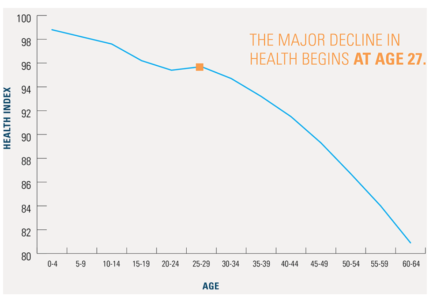Dental robot swarms, over-the-hill millennials, a new kind of dementia, and more
02 May 2019
Posted by Andrew Kantor
No, suicide isn’t painless
Suicide among kids is going up, and no, it’s not just because of “13 Reasons Why.” Over the past decade, “the rate of attempted suicide by poison has more than doubled among people under 19” according to new research — and that’s part of an overall increase in suicide in the country.
Drawing on 19 years of data from 55 poison centers across the country, researchers found that among people 10 to 15, attempted suicides by poison were relatively flat until 2010.
From 2011 to 2018, however, the numbers began to skyrocket, increasing by 141 percent overall. The occurrence among girls was particular pronounced. Among girls 10 to 12, for example, the poison-suicide attempts increased by 338 percent.
As for “13 Reasons Why,” there’s definitely a correlation with an increase in teen suicides (especially among boys, oddly), but researchers don’t know if there’s a causation.
On the other hand, death is waiting
The Interagency Coordination Group on Antimicrobial Resistance warns that in the next 25 to 30 years, 10 million people a year could die from drug-resistant diseases. (At least 700,000 people already do.)
That’s a bit of a downer
So it’s no wonder that people all over the world are stressed, worried, and angry. And Americans are among the most stressed of all — #9 in the world behind Greece, the Philippines, Tanzania, Albania, Iran, and Sri Lanka. (Good news: We’re about average when it comes to worry and anger.)
Vaccine demand is going up
Not a “surge,” says measles-vaccine maker Merck, but a noticeable uptick. The company is increasing production.
Speaking of measles
The other day we said that the current outbreak is the largest in the U.S. in 20 years. Well now it’s the largest in 25 years … and it’s only May. Oh, and children under 5 count for half the cases.
That’s a pretty short hill to climb
For millennials, it’s all downhill after age 27.

It’s not just Alzheimer’s
Doctors have identified a different kind of dementia, similar to Alzheimer’s but slower acting.
The disease, called LATE (Limbic-predominant age-related TDP-43 encephalopathy), may often mirror the symptoms of Alzheimer’s disease, though it affects the brain differently and develops more slowly than Alzheimer’s. Doctors say the two are frequently found together, and in those cases may lead to a steeper cognitive decline than either by itself.
Unusual health news: dental edition
Instead of scraping and scrubbing, what if your dentist could release a swarm of microrobots into your mouth to clean the plaque? (Is it safe?)


